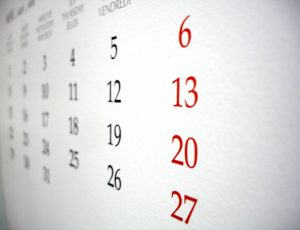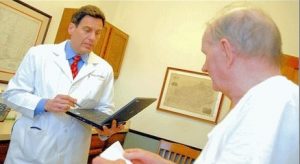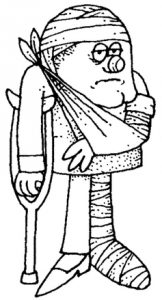 Florida statute 440.11 precludes workers injured on the job from recovering damages from the employer at law or in admiralty on account of such injury or death. Damages at law or in admiralty include non-economic damages such as pain and suffering. It is a common law remedy.
Florida statute 440.11 precludes workers injured on the job from recovering damages from the employer at law or in admiralty on account of such injury or death. Damages at law or in admiralty include non-economic damages such as pain and suffering. It is a common law remedy.
Damages for pain and suffering are not available under Florida’s workers’ compensation system. Basically, workers’ compensation benefits are limited to medical and indemnity. Statute 440.10 extends the 440.11 immunity to contractors and subcontractors on the same project who are not the injured worker’s actual employer. They are considered statutory employers.
It is every personal injury lawyer’s job to maximize his or her client’s recovery. In most workplace accidents, the injured worker is limited to workers’ compensation benefits, leaving the personal injury lawyer without a role. (Our law firm handles both personal injury and workers’ compensation cases.) This is not only because of 440.10 and 440.11. In some instances, for example, there is nobody to blame for the accident other than the employee.
Are there exceptions to 440.10 and 440.11? Yes. To succeed against the actual employer, the employee must demonstrate that the employer’s conduct rose to the level of intentional conduct substantially certain to result in injury. To make good on a case against a 440.10 entity, the employee must demonstrate the following:
1) circumstances constituting an imminent or clear and present danger amounting to a more than normal or usual peril, 2) knowledge or awareness of the imminent danger on the part of the tortfeasor, and 3) an act or omission that evinces a conscious disregard of the consequences. Kline v. Rubio, 652 So. 2d 964, 965-66 (Fla. 3d DCA 1995).
Under certain circumstances, an employee may pursue these common law remedies after receiving workers’ compensation benefits. Vellejos v. Lan Cargo SA allowed the Claimant to pursue a civil remedy under the statutory exceptions after executing a broad release in his workers’ compensation settlement.
A person injured while working has the right to elect between two different remedies — workers’ compensation and common law — for compensation. “However … the point upon which a worker’s action with regard to a compensation claim constitutes an election of the workers’ compensation remedy to the exclusion of a civil action is not entirely clear.” Jones v. Martin Electronics, Inc., 932 So. 2d 1100, 1105 (Fla. 2006). Florida courts have clearly stated that the “[m]ere acceptance of some compensation benefits . . . is not enough to constitute an election” of remedies. Velez v. Oxford Dev. Co., 457 So.2d 1388, 1390 (Fla. 3d DCA 1984) (quoting Whitney-Fidalgo Seafoods, Inc. v. Beukers, 554 P.2d 250, 254 (Alaska 1976)); see also Wheeled Coach Indus., Inc. v. Annulis, 852 So.2d 430, 432 (Fla. 5th DCA 2003); Hernandez v. United Contractors Corp., 766 So.2d 1249, 1252 (Fla. 3d DCA 2000); Lowry v. Logan, 650 So.2d 653, 657 (Fla. 1st DCA 1995); Wishart v. Laidlaw Tree Serv., Inc., 573 So.2d 183, 184 (Fla. 2d DCA 1991).
There are also the cases where, because the compensability of the claim or the status of the employee at the time of the injury was contested, an election was not made: Vasquez v. Sorrells Grove Care, Inc., 962 So. 2d 411, 415 (Fla. 2d DCA 2007) (noting that the carrier contested the compensability of the claim and whether Vasquez was an employee); Hernandez v. United Contractors Corp., 766 So. 2d 1249, 1252 (Fla. 3d DCA 2000) (holding that because the carrier contested the compensability of the claim and took the position that there was no evidence that the accident arose out of and in the course and scope of Hernadez’s employment, there was no conclusion on the merits); Lowry v. Logan, 650 So. 2d 653, 658 (Fla. 1st DCA 1995) (“there remain disputed issues of fact concerning whether Lowry is an [sic] covered employee or an independent contractor and whether he was injured in the course and scope of his employment”); Wright v. Douglas N. Higgins, Inc., 617 So. 2d 460, 461-62 (Fla. 3d DCA 1993) (reversing summary judgment because there was no determination that plaintiff was an employee in the workers’ compensation case); Wishart v. Laidlaw Tree Serv., Inc., 573 So. 2d 183, 184 (Fla. 2d DCA 1991) (“The critical issue of fact which must be determined by the trial judge is whether the employee was injured in the course and scope of his employment.”); Velez v. Oxford Dev. Co., 457 So. 2d 1388, 1391 (Fla. 3d DCA 1984) (reversing summary judgment because there was no determination that plaintiff was an employee in the workers’ compensation case).
Continue reading
 Almost every trial level decision made by a Florida judge of workers’ compensation claims (JCC) relies, at least in part, on the opinion of a physician. If there is a disagreement in the opinions of the health care providers, section 440.13(9)(c), Florida Statutes allows the JCC to appoint what the statute calls an expert medical advisor (EMA) to break the tie. Because the statute provides that “[t]he opinion of the expert medical advisor is presumed to be correct unless there is clear and convincing evidence to the contrary,” the EMA doctor has come to be known as a “Super Doc.”
Almost every trial level decision made by a Florida judge of workers’ compensation claims (JCC) relies, at least in part, on the opinion of a physician. If there is a disagreement in the opinions of the health care providers, section 440.13(9)(c), Florida Statutes allows the JCC to appoint what the statute calls an expert medical advisor (EMA) to break the tie. Because the statute provides that “[t]he opinion of the expert medical advisor is presumed to be correct unless there is clear and convincing evidence to the contrary,” the EMA doctor has come to be known as a “Super Doc.” Florida Injury Attorney Blawg
Florida Injury Attorney Blawg










